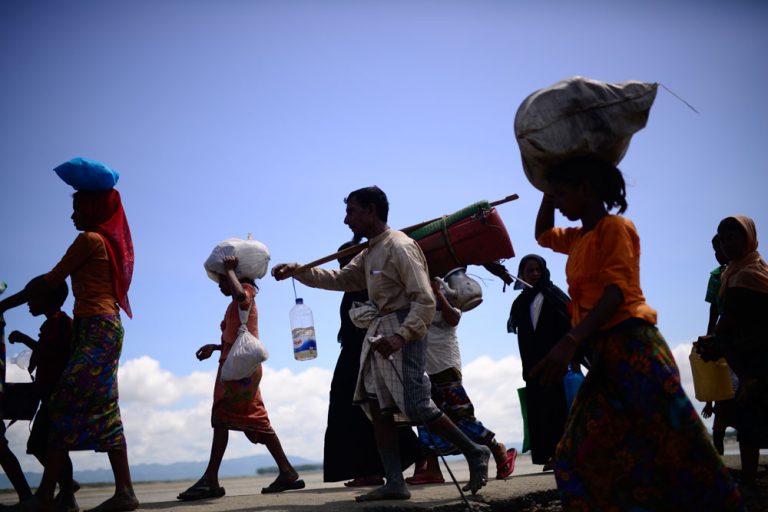Desperation breeds criminality
The Rohingya living in southern Bangladesh are passing their days in inhuman conditions. They are confined to the restraints of the refugee camps. They are not allowed to work. They are not allowed to learn Bangla. They are not allowed to marry Bangladeshis. And most importantly, they are not allowed to leave the confines of the camp.
This has lead to a desperate situation. As such, the refugees have to find a living in extralegal means. That is why they are going down to the path of criminality. They are trafficking drugs, they are getting involved in robberies and terrorist activities. This is only natural.
The conditions they are living in are desperate, and desperate situations calls for desperate measures. When the only means of earning becomes relying on extralegal means, it is very predictable that they would rely on such means to earn a living.
Rohingya are the most persecuted group in the world. They have faced inhuman conditions inside the borders of Myanmar. They have come to Bangladesh in the hopes of a better future. However, if that dream is denied and they are kept in captivity, they will have no other choice but to make their own luck in any way possible. And that is not good news for Bangladesh.
However, if we find a way to free them from the confines of the refugee camps and give them a chance to work inside the borders of the country with proper identification, it would be better for both our own economy and their livelihood. They can work as small businessmen, agricultural workers, fishermen, traders, transportation operators, and other professions.
Working immigrants always bring about positive results for the host country. Other countries in the world have found great benefits in employing migrant workers. According to American Libertarian think-tank Marcatus Centre, immigrants strengthen the US economy by filling key jobs in important industries, starting businesses, filing patents, creating new products, and keeping America demographically younger.
The same could happen for Bangladesh too. According to the International Monetary Fund (IMF), migrant workers increase GDP per person and improve productivity. A survey conducted by Eurofund has found that migrant workers’ skills allow businesses to expand their workforce, to fulfill existing contracts, and to take on more work.
Giving the Rohingya refugees work permits will not only improve the economy, it will also decrease criminal activities and terrorism. It will give the Rohingya a way to earn an honest living and integrate into the society of their host country. It may also breed a unique form of entrepreneurship among the Rohingya women as they may engage in the cottage industry.
The Rohingya are already working and they have proven that they are good and honest workers. An investigation by Women’s Wear Daily has found that thousands of Rohingya are working in garment factories in secret in Chittagong. If they are given work permits, they can come out of hiding, work legally, and contribute to the economy.
Migrant workers do not put a strain on the economy, they benefit it. They do not drain the social safety net, they enrich the society. It is time for us to get out of our xenophobia and give our guests a chance.
Anupam Debashis Roy is a member of the Editorial Board at Muktiforum. This article was originally published in Dhaka Tribune.


